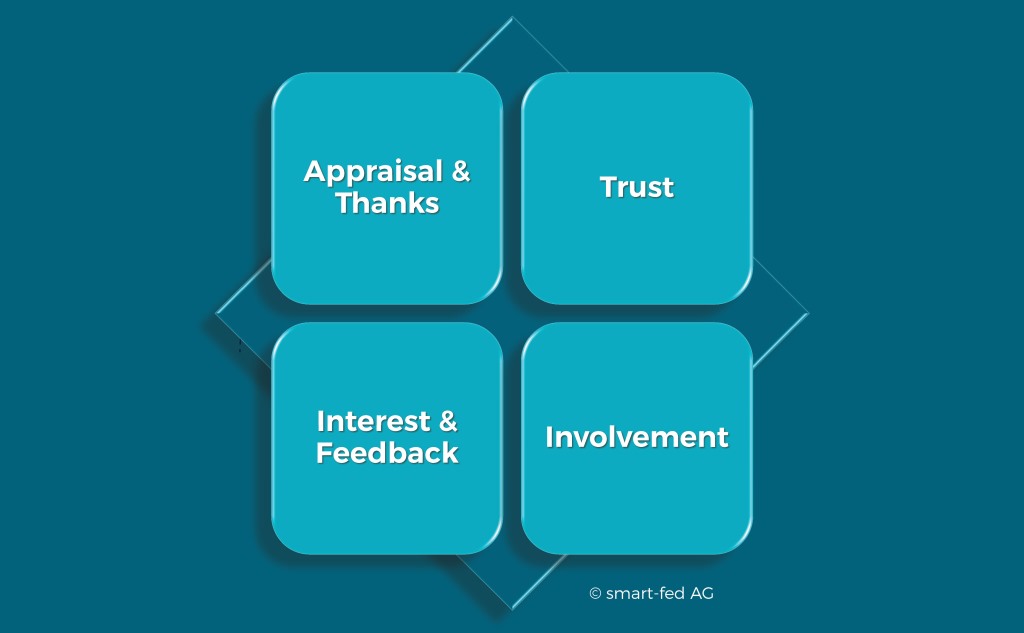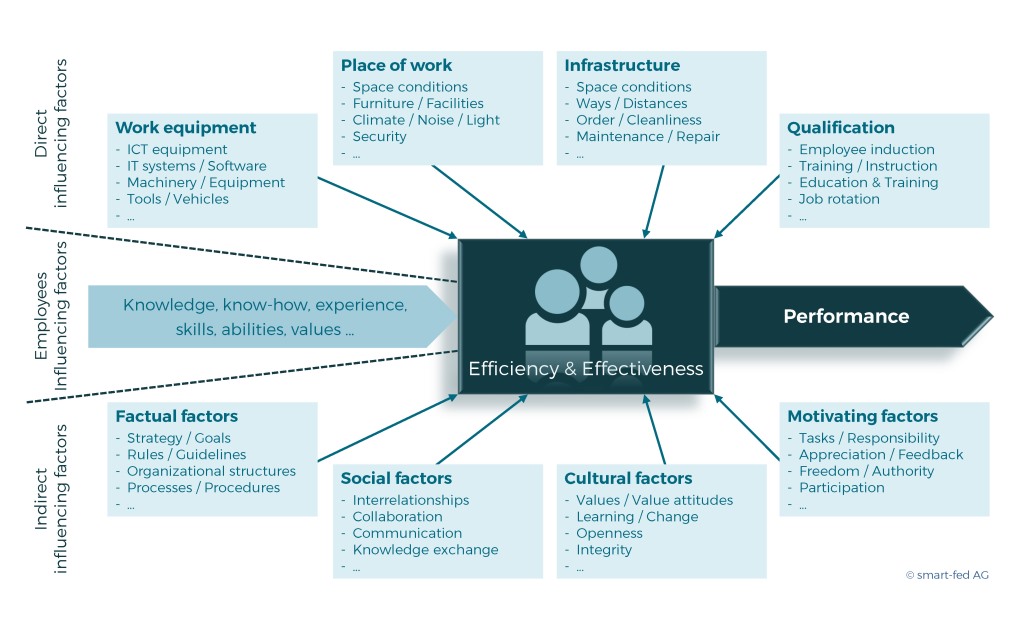Megatrend USA
Individual employee feedback instead of surveys
In the USA, experts predict that employee surveys will become less important as an HR tool by 2025, both at annual intervals and in the form of micro surveys. The trend is moving towards more individual feedback from employees.
The reasons for realignment
From the perspective of organizations as feedback recipients, there are three main factors that are increasingly challenging the traditional survey approach:
1. poor attendance
Response rates have been falling for years. A lot of effort for little appreciation from employees.
2. lack of authenticity
“Favor feedback” or the fear of negative consequences distort survey results and the quality of the information they provide.
3. lack of effect
Despite an increase in micro-surveys, staff turnover rates are rising and employee commitment is steadily declining. Substantial improvements are hardly recognizable anymore.
The employees’ perspective
On the other hand, employee disinterest in surveys has been increasing for years. The main reasons for this can be summarized in the following points:
1. lack of relevance
Topics, evaluation criteria and timing of the surveys are restrictively specified by the organizations. It is more of a coincidence if these points meet the currently relevant problems and challenges facing employees.
2. lack of openness
Critical topics are often avoided in surveys – often because the organization is afraid of negative ratings or for tactical reasons.
3. lack of anonymity
Despite assurances, anonymity is repeatedly undermined in surveys. Managers address their employees directly about their feedback or indirectly urge them to disclose their evaluations in debriefings of the survey results.
4. no changes
All too often, employees find that surveys often result in nothing more than lip service or cosmetic improvements. This leads to even more frustration and resignation.
A new approach to individual feedback
The use of artificial intelligence (AI) in surveys will not bring any improvement as long as the classic survey principles and objectives are not reconsidered. Companies will only benefit from AI if the approach to feedback collection is fundamentally changed. A new approach should fulfill the following principles:
1. individuality
Employees must be able to decide for themselves when and on what or to whom they want to give feedback.
2. openness
Feedback must be open to all topics that influence the efficiency, effectiveness, motivation and commitment of employees in their job.
3. practical relevance
Internal feedback must relate to employees’ specific issues and not use academic models and studies.
4. voluntariness & anonymity
Intrinsically motivated feedback and protection of anonymity are the key prerequisites for authentic and relevant feedback from the organization.
These basic principles form the basis for the SMART FED feedback portal. It accumulates employees’ experiences and perceptions in order to make the organization’s strengths, potential and risks visible. This is the only way to act efficiently and effectively.
Appreciate your employees by listening to them openly and emphatically. This strengthens trust and has been proven to increase employee loyalty.
⇒ Author: Martin Mechlinski / SMART FED
Megatrend USA
Individual employee feedback instead of surveys

In the USA, experts predict that employee surveys will become less important as an HR tool by 2025, both at annual intervals and in the form of micro surveys. The trend is moving towards more individual feedback from employees
The reasons for realignment
From the perspective of organizations as feedback recipients, there are three main factors that are increasingly challenging the traditional survey approach:
1. poor attendance
Response rates have been falling for years. A lot of effort for little appreciation from employees.
2. lack of authenticity
“Favor feedback” or the fear of negative consequences distort survey results and the quality of the information they provide.
3. lack of effect
Despite an increase in micro-surveys, staff turnover rates are rising and employee commitment is steadily declining. Substantial improvements are hardly recognizable anymore.
The employees’ perspective
On the other hand, employee disinterest in surveys has been increasing for years. The main reasons for this can be summarized in the following points.
1. lack of relevance
Topics, evaluation criteria and timing of the surveys are restrictively specified by the organizations. It is more of a coincidence if these points meet the currently relevant problems and challenges facing employees:
2. lack of openness
Critical topics are often avoided in surveys – often because the organization is afraid of negative ratings or for tactical reasons.
3. lack of anonymity
Despite assurances, anonymity is repeatedly undermined in surveys. Managers address their employees directly about their feedback or indirectly urge them to disclose their evaluations in debriefings of the survey results.
4. no changes
All too often, employees find that surveys often result in nothing more than lip service or cosmetic improvements. This leads to even more frustration and resignation.
A new approach to individual feedback
The use of artificial intelligence (AI) in surveys will not bring any improvement as long as the classic survey principles and objectives are not reconsidered. Companies will only benefit from AI if the approach to feedback collection is fundamentally changed. A new approach should fulfill the following principles:
1. individuality
Employees must be able to decide for themselves when and on what or to whom they want to give feedback.
2. openness
Feedback must be open to all topics that influence the efficiency, effectiveness, motivation and commitment of employees in their job.
3. practical relevance
Internal feedback must relate to employees’ specific issues and not use academic models and studies.
4. voluntariness & anonymity
Intrinsically motivated feedback and protection of anonymity are the key prerequisites for authentic and relevant feedback from the organization.
These basic principles form the basis for the SMART FED feedback portal. It accumulates employees’ experiences and perceptions in order to make the organization’s strengths, potential and risks visible. This is the only way to act efficiently and effectively.
Appreciate your employees by listening to them openly and emphatically. This strengthens trust and has been proven to increase employee loyalty.
⇒ Author: Martin Mechlinski / SMART FED







